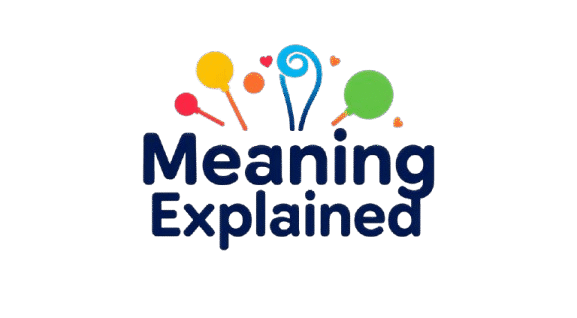Understanding “tenure” and “hiatus” is key to clear communication in professional and casual settings. This guide breaks down their meanings, usage, and alternatives, keeping the tone versatile for emails, texts, or academic discussions.
With a focus on clarity, we explore how these terms apply across contexts in 2025. Tenure and hiatus are words we often hear in work or school settings, but their meanings can be confusing. Tenure is about how long someone holds a job, position, or property, showing stability or commitment.
Hiatus, on the other hand, means a short break or pause in that time. This guide will explain both terms clearly, with simple examples to help you understand their use in 2025.
What Does Tenure Mean?
Tenure is a term that describes how long someone holds a position, job, or property, often implying stability or security. In academia, it means permanent job protection for professors after a probationary period. In workplaces, it refers to the time spent in a role, like a “10-year tenure” at a company. It can also apply to property, indicating the conditions of ownership or use.
- In academia, tenure is permanent job security for educators.
- In employment, it marks time spent in a role.
- In real estate, it refers to property possession terms.
Tenure reflects stability, but what happens when it’s paused?
Hiatus Meaning of Tenure Definition

A hiatus is a temporary break in an ongoing activity. In relation to tenure, it means a pause in active duties without ending the overall tenure. For example:
- A professor on sabbatical is on hiatus but retains tenure.
- An employee on medical leave pauses work, yet their tenure continues.
Hiatus within tenure is a temporary stop, not a termination.
What Tenure Stands For in Text Conversations?
In texting, “tenure” is rare but implies time in a role. Examples include:
- “My tenure at ABC was awesome.”
- “She’s on hiatus, but her tenure counts.”
Casual alternatives are:
- “When I worked at…”
- “Back in my time at…”
- “While I was there…”
These keep conversations light and relatable.
Professional Meaning of Tenure
Tenure has structured meanings in professional settings:
1. Academic Tenure
Earned after years of teaching or research, it ensures job security, protecting educators from arbitrary dismissal.
2. Corporate Tenure
Refers to years worked at a company, often noted in resumes (e.g., “5-year tenure as manager”).
3. Political Tenure
Marks the duration an official holds office, like a mayor’s term.
Hiatuses, such as leaves or sabbaticals, don’t end tenure but pause active roles.
Casual Usage: Tenure in Everyday Talk
In daily conversations, “tenure” is often replaced by informal phrases:
- “Back when I was at that job…”
- “When I worked there…”
- “I’ve been with them forever.”
These alternatives feel natural and avoid formal tones.
Exploring Alternatives to the Phrase “Hiatus”

Instead of using “hiatus,” you can choose words like break, pause, sabbatical, time off, or leave of absence to match the context and tone. For casual settings, “break” or “time off” feels relaxed, like “She took a break from work.”
In formal or academic scenarios, “sabbatical” or “leave of absence” fits better, such as “He’s on a sabbatical to research.” Other options like “gap,” “downtime,” or “cooling-off period” work for resumes, tech, or legal contexts, ensuring clear and appropriate communication.
1. Break
Simple and versatile for any setting.
“She took a break from her job.”
2. Pause
Suggests a short, temporary stop.
“Let’s pause this project for now.”
3. Intermission
Elegant, often used in creative contexts.
“Work resumed after an intermission.”
4. Sabbatical
Academic or professional planned leave.
“He’s on a sabbatical to study.”
5. Time off
Casual and friendly.
“I’m taking time off to chill.”
6. Leave of absence
Formal, used in HR or legal contexts.
“She’s on a leave of absence.”
7. Downtime
Common in tech or casual talk.
“The team had downtime last week.”
8. Recess
Used in education or legal settings.
“Court took a brief recess.”
9. Furlough
Employment term, often crisis-related.
“Workers were furloughed last year.”
10. Cooling-off period
Common in contracts or disputes.
“There’s a cooling-off period before signing.”
11. Gap
Fits resumes or storytelling.
“A gap in her career was due to travel.”
When to Use Each Term: Tone and Context Matter?
The right term depends on the setting:
- Formal (e.g., emails, contracts): Use “leave of absence” or “sabbatical.”
- Casual (e.g., chats): Opt for “break” or “time off.”
- Academic: “Sabbatical” or “hiatus” works best.
- Legal/HR: “Furlough” or “cooling-off period” is appropriate.
- Narrative: “Gap” or “pause” flows naturally.
Matching tone to context ensures clarity.
Why Understanding Tenure and Hiatus Matters?
Knowing these terms prevents:
- Misinterpreting job roles or contracts.
- Errors in resumes or professional documents.
- Confusion in casual or formal discussions.
Using them correctly enhances communication across settings.
Frequently Asked Questions
What is the definition of tenure?
Tenure is the period or conditions of holding a position, often implying security.
What does hiatus mean in relation to tenure?
A hiatus is a temporary pause in active duties, but tenure continues.
How is tenure used in a text message?
It refers to time in a role, like “My tenure at XYZ was great,” often replaced by “when I worked at…”
Can someone be on hiatus and still have tenure?
Yes, tenure persists during breaks like sabbaticals or leaves.
What are polite alternatives to the word hiatus?
Use “pause,” “sabbatical,” “time off,” or “leave of absence” based on context.
Final Thoughts
Tenure reflects a person’s time and dedication in a role, showing their commitment. A hiatus is just a short break, not an end to that tenure. Using these terms correctly makes your communication clear and professional. They help you express ideas in both casual and formal settings.
Understanding tenure and hiatus avoids confusion in conversations or documents. Whether it’s a job, academic role, or property, tenure carries weight. Choose hiatus alternatives like “pause” or “break” to suit the tone. These terms empower you to communicate with confidence in 2025.

